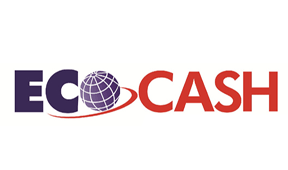Zimbabwe’s largest mobile operator, Econet, has taken the country’s central bank to court over its decision to ban all cash-in and cash back transactions on all mobile money payment platforms.
The Reserve Bank of Zimbabwe (RBZ), claimed the platform was being manipulated by some foreign currency dealers to extort cash from citizens while marking up transactions reportedly causing price instabilities.
But in an urgent chamber application, case number 7994/19 filed Tuesday at the High Court in Harare, Econet, trading as Cassava Smartech Zimbabwe Limited, argued the abuse cited by RBZ was committed by users (citizens) who used the Ecocash platform for their dealing.
The mobile operator also stated RBZ’s directive would affect millions of unbanked people who transact on the platform daily.
Ecocash was formed in September 2011 and now has about 10 562 070 registered users of which 6 337 242 are rural and 4 224 828 are urban users.
In its urgent chamber application, Ecocash said when the cash in facility was introduced, money worth US$ 10 195 546 216 and ZW$ 542 785 610 were made from 227 519 851 transactions.
While out of the 387 308 926 cash out transactions, money worth US$ 8657 704 and ZW$4 142 862 274 was exchanged.
Through its lawyer, Mzokuthula Mbuyisa of Mtetwa and Nyambirai Legal Practitioners, Econet argued that RBZ’s directive only communicated to the company in the afternoon of September 30, 2019 would also affect those who were clean since there has to be a total shutdown of Ecocash.
Mbuyisa noted, however, that RBZ’s directive is beyond the central bank’s power as Section 10 of the National Payments Systems Act (Chapter 24:23 ) empowers the RBZ to only act against the acts or omissions of a system or of the management board.
“In the present case the abuse complained about is attributable to some customers of the applicant not to the system of the applicant or the management board of the applicant. In any event, the RBZ’s decision is irrational in that it seeks to penalise even the innocent users of the applicant’s system instead of identifying the abusers and dealing with them on a case by case basis as the RBZ has done before,” Mbuyisa said.
He added that termination of Ecocash facilities would constitute a compulsory deprivation of property in violation of Zimbabwe’s constitution.
“The shutdown of the applicant’s facilities will cause financial loss to the applicant and to millions of innocent users in amounts not capable of quantification…In the circumstances, I submit that the requirements for the grant of a temporary interdict have been established by the applicant and further that this matter cannot wait to be dealt with as an ordinary application as the implications of the implementation of RBZ’s directive are devastating.”
In his founding affidavit, CEO of Cassava SmarTech Zimbabwe Limited, Edmore Chibi, said the public company was listed on the Zimbabwe Stock Exchange, whose shareholders included pension funds.
Chibi said Ecocash was recognised by RBZ in accordance with the provisions of the National Payments Systems Act and provided access the unbanked Zimbabwean population after the serial collapse of banks in Zimbabwe.
“According to media reports the size of the banked population has reduced to less than 10 percent of the population and has played a critical role in facilitating transactions between Zimbabweans in circumstances of acute liquidity challenges,” he said.
The CEO noted that the cash in and cash out facilities were the most important Ecocash products especially to the unbanked population who do not have ready access to banks.
These facilities, he said, “enable the population that may have cash to deposit their cash with Eco cash agents that number 51 000, which was more than the number of banking branches of all banks in Zimbabwe combined.”
Chibi acknowledged there was a surge in the demand for cash as own investigations showed that people bought cash at a premium of approximately 35 percent using either their RTGS bank balances or Ecocash.
He argued that exchange of electronic money for cash must be higher on the RTGS platform as it commanded a higher market share by value than Ecocash.
The results of internal investigations, Chibi said were corroborated by the recent freezing of bank accounts that were announced by the RBZ against some companies.
These accounts were also attached as evidence in the urgent chamber application.
“RBZ and Ecocash have been investigating incidences of abuse of the ecocash platform by users. Where users have been found to have abused the platform, their accounts have been frozen. Since June 2019 various accounts of agents and individuals have been frozen of allegations of money laundering or abuse of the Ecocash platform,” Chibi said, adding he could provide evidence, if it was sought.

